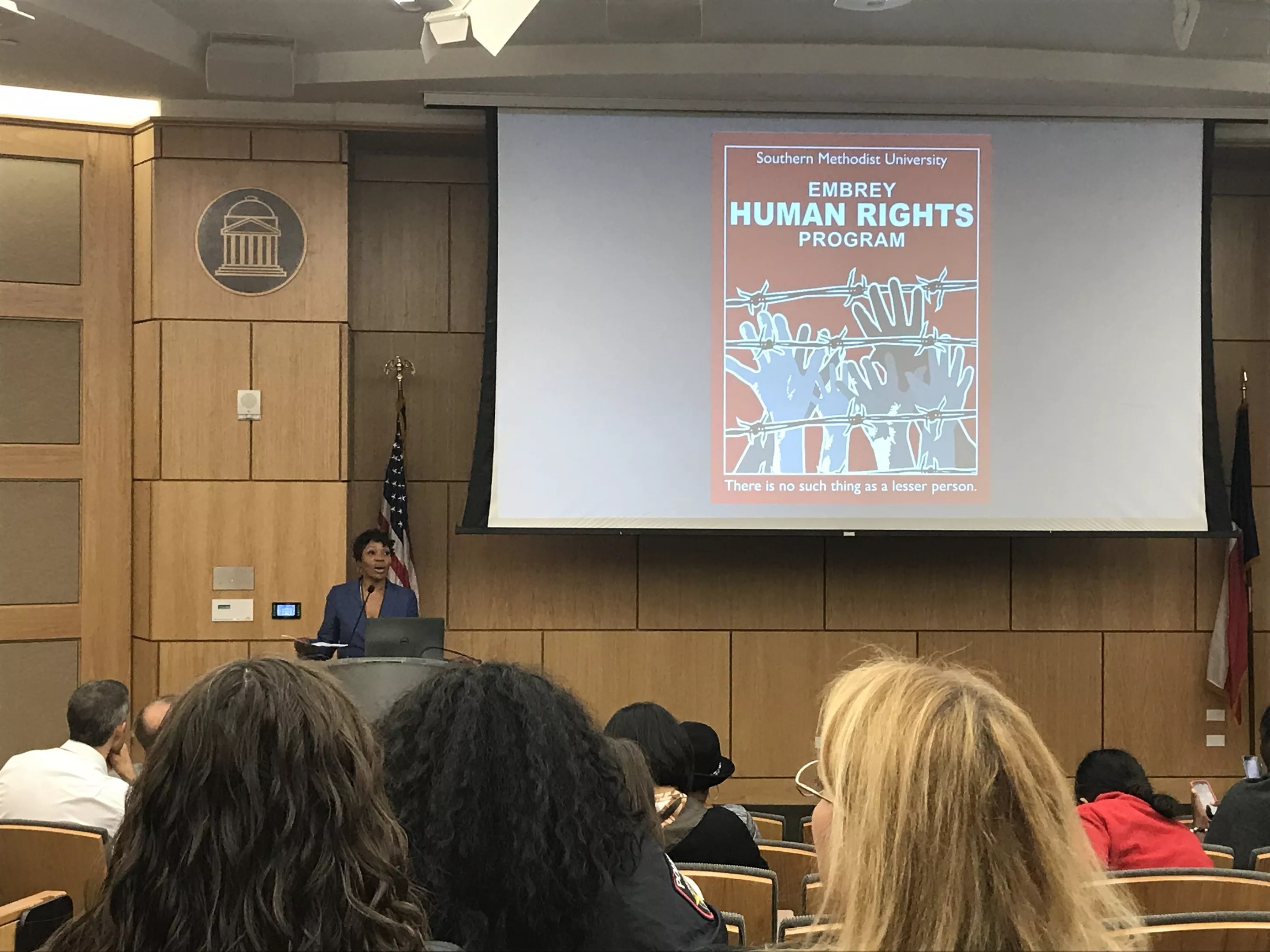
Paige Skinner

Audio By Carbonatix
Newly appointed Dallas police Chief U. Renee Hall spoke about human trafficking Thursday afternoon during a lecture titled “Protecting Our Daughters and Sons” through Southern Methodist University’s Embrey Human Rights Program. Her speech, the first appearance of her tenure, only lasted a few minutes.
Hall, who previously served as deputy chief of police in Detroit, told the Dallas crowd that “you guys” have a human trafficking problem, then laughed and corrected herself. “I mean ‘we,'” she said. “I need to get used to that.”
According to the Institute on Domestic Violence and Sexual Assault, 79,000 Texas minors are victims of human trafficking; 234,000 Texans are victims are labor trafficking; traffickers exploit about $600 million from victims of labor trafficking in Texas; and minor and youth sex trafficking costs Texas about $6.6 billion.
“We want to make this place a hostile environment for people who want to create harm and sex traffic our women and children,” Hall said. After finishing her quick speech, the crowd gave her a standing ovation.
Twenty percent of all human trafficking comes through Texas at some point, and the state has the second-highest rate of calls to national human trafficking hotlines in the country, according to the National Human Trafficking Resource Center.
The United Nations defines trafficking as “the recruitment, transportation, transfer, harbouring or receipt of persons, by means of the threat or use of force or other forms of coercion, of abduction, of fraud, of deception, of the abuse of power or of a position of vulnerability or of the giving or receiving of payments or benefits to achieve the consent of a person having control over another person, for the purpose of exploitation.”
Later in the lecture, four survivors of human trafficking spoke on a panel about the signs someone is being trafficked and how people can help.
“There is no certain face for a victim of trafficking,” one survivor said. “Some things to look for are if a person changes. If all of a sudden they have expensive things when they didn’t before. Or a lot of times, the traffickers will brand their women. So if you see a woman with a tattoo, and it’s the same tattoo as a lot of her ‘friends,’ but it doesn’t look like a friendship tattoo, that might be a sign.”
Another panelist spoke about how victims rarely self-identify.
“Even if you tell them over and over that they are victims, they will never believe it,” the survivor said. “Instead, it’s important give them a pamphlet or something explaining what a victim is. Then they might start thinking, ‘Maybe my boyfriend isn’t my boyfriend.'”